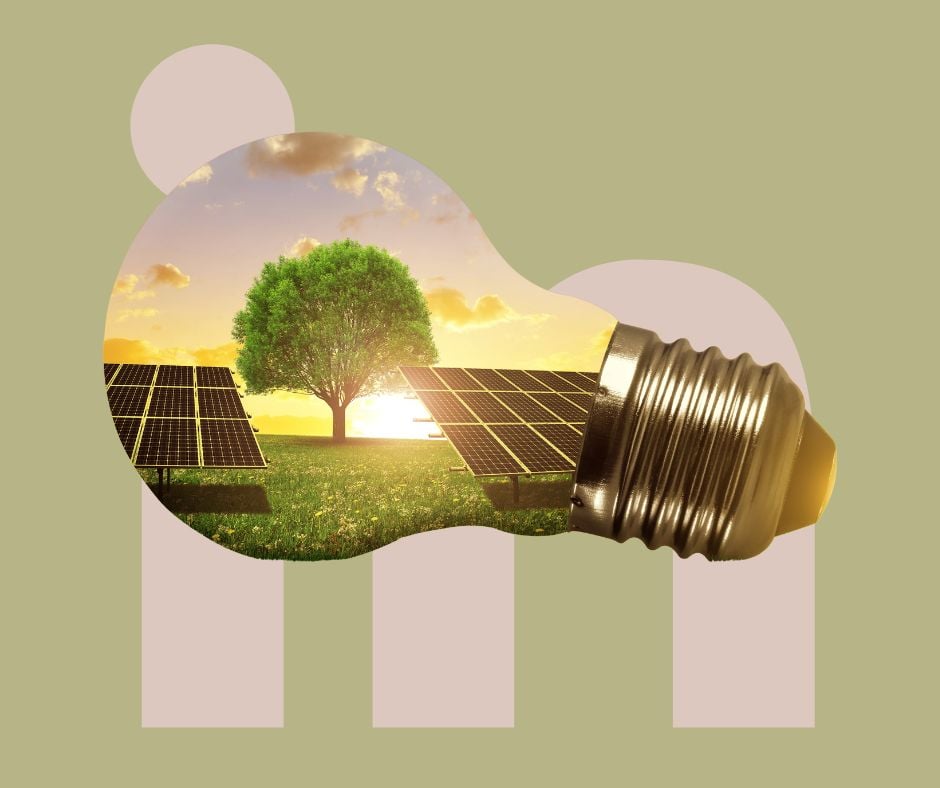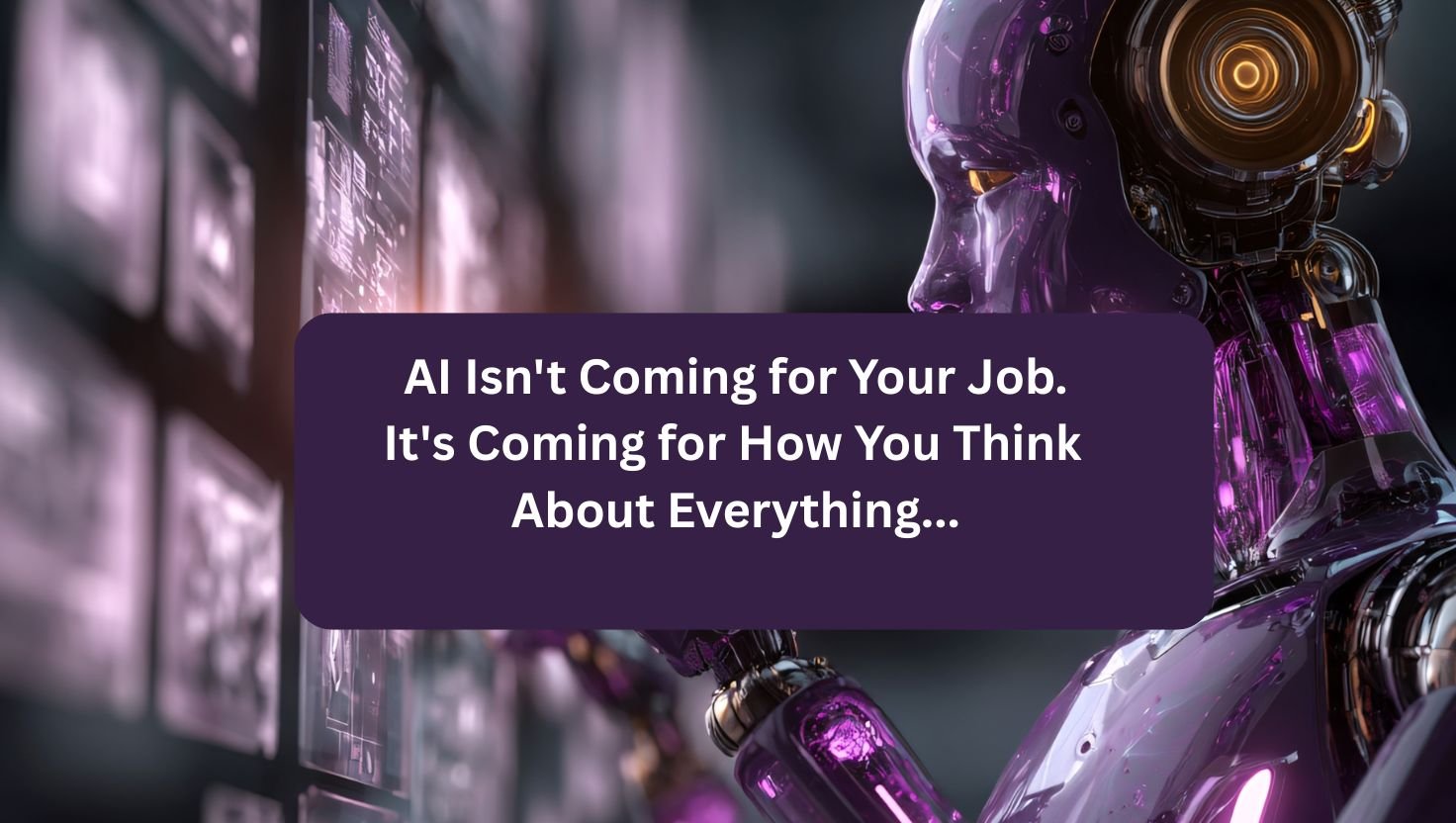Everyone's worried about AI taking jobs. But here's what's actually happening: AI is quietly changing how we approach problems, make decisions, and even have conversations at work.
How Your Work Day Changed (And You Didn't Notice)
Think about your last big project. Did you:
- Ask ChatGPT to help brainstorm ideas?
- Use AI to draft an email you were struggling with?
- Run data through an AI tool instead of Excel?
- Have AI explain a concept you were researching?
If you did any of these, you didn't just save time. You changed how you work through problems.
Instead of staring at a blank page, you started a conversation. Instead of Googling for the "right" answer, you asked follow-up questions. Instead of working alone, you brought in a thinking partner. That's not automation. That's collaboration.
The Shift From "Knowing" to "Asking"
Here's a simple example: Last week, you needed to understand blockchain for a client presentation. Five years ago, she would have read articles, watched videos, maybe bought a book.
Instead, she spent 30 minutes having a conversation with Claude. She asked basic questions, then follow-ups, then specific scenarios. She went from zero knowledge to presentation-ready in half an hour.
The skill wasn't memorizing blockchain facts. It was knowing how to ask the right questions to get useful answers.
This is happening across every industry. The premium isn't on what you know—it's on how well you can work with AI to figure out what you need to know.
Three Ways AI Is Already Changing Your Thinking
1. You're Getting More Creative (Whether You Realize It or Not)
When AI handles the initial draft, research, or data analysis, your brain is freed up for the interesting stuff: connecting ideas, spotting patterns, making judgment calls.
I've seen marketing teams use AI to generate 50 campaign concepts in minutes, then spend their time on the creative part—combining ideas, adding brand personality, making strategic choices.
2. You're Making Decisions Faster
AI doesn't just give you information—it helps you process it. You can run scenarios, test assumptions, and explore options without the usual research bottleneck.
A project manager I know now runs "what if" analyses through AI that used to take her team days. She's not making hasty decisions; she's making informed decisions faster.
3. You're Collaborating Differently
Team dynamics change when everyone has an AI thinking partner. Meetings become less about "who knows what" and more about "what should we explore" and "how do we decide."
The New Workplace Skills
The people adapting fastest aren't necessarily the most tech-savvy. They're the ones who've figured out:
How to Ask Better Questions
- Instead of "What is customer retention?" try "What are three unconventional strategies for improving customer retention in SaaS companies with under 100 employees?"
How to Iterate Quickly
- Don't aim for the perfect prompt. Start with a rough idea and refine through conversation.
How to Maintain Judgment
- AI gives you options and analysis. You still decide what's right for your situation, your customers, your values.
How to Combine AI Output with Human Insight
- Use AI for the heavy lifting, then add your experience, intuition, and understanding of context.
What This Actually Means for Your Career
Here's the practical reality: The people who learn to work effectively with AI aren't just more productive. They're operating at a different level. They're the ones who can:
- Prototype ideas faster
- Research more thoroughly
- Communicate more clearly
- Solve problems more creatively
Not because AI is doing their job, but because AI is amplifying their capabilities.
Getting Started (Without Overthinking It)
You don't need to become an AI expert. Start small:
- Next time you're stuck on something, try asking AI for help. Not to do it for you, but to think through it with you.
- Use AI for first drafts. Emails, presentations, project plans. Then edit with your expertise and voice.
- Ask AI to play devil's advocate on your ideas. It's surprisingly good at poking holes in assumptions.
- Experiment with asking follow-up questions. The real power isn't in the first response—it's in the conversation.
The Bottom Line
AI isn't replacing how you think. It's upgrading how you think. The question isn't whether this change is coming. It's already here. The question is whether you'll lean into it intentionally or let it happen to you by accident.
Your job might be safe. But your approach to that job? That's definitely changing. And honestly, that might be the best thing that's happened to work in decades.
What's your experience been? Are you noticing these shifts in how you approach problems at work? I'm curious to hear what's working.
Nicole K.



Comments ()